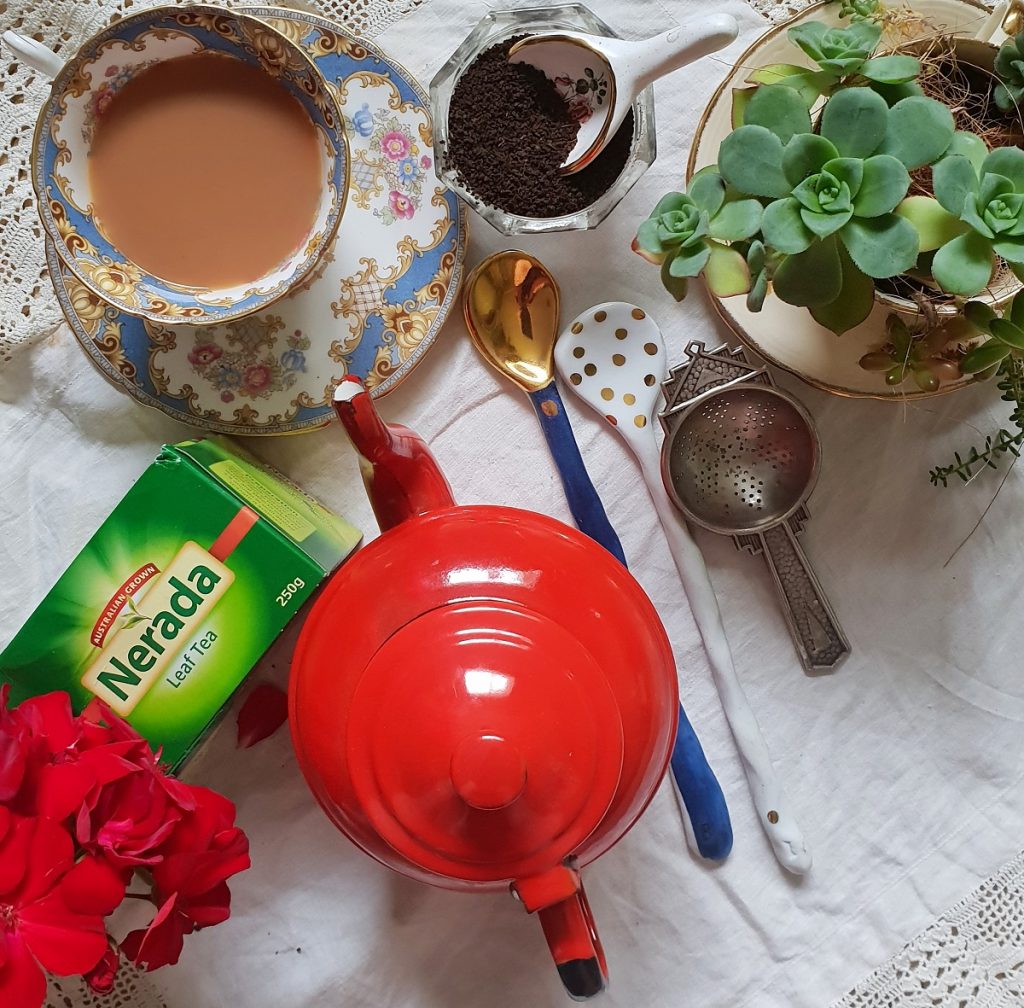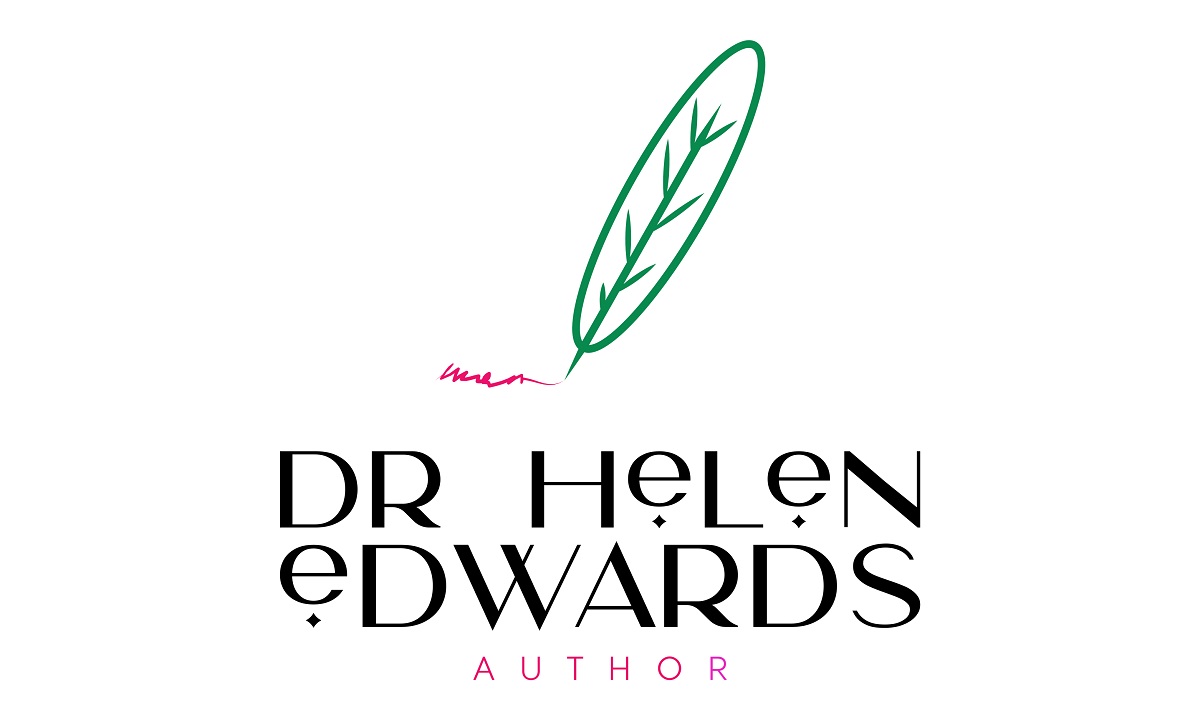From Crop to Cup – The Nerada Tea Story

This post is brought to you in partnership with Nerada Tea
Tea is a part of everyday life for so many people, but when you pour your morning cuppa, do you stop to consider the story behind the growing and harvesting of your tea? Buying locally grown and manufactured produce is an important part of sustainability. And knowing the story behind your food and drink makes it taste all the sweeter. I am working with Nerada Tea, my personal tea of choice for many years, to share their story over coming months. Stay tuned for a great giveaway, tea tips and recipes and more!
Grown on the Tablelands
Imagine rising high above the world, looking out across the lush subtropical climate of the Atherton Tablelands, deep green fields laid out below you, with blue tinged mountains in the background. This is where the Nerada Tea family live and grow their black tea, and it is the perfect environment to grow quality black tea. Many people don’t realize that Australia produces tea! Most of the world’s tea is grown overseas. It is a joy to be able to drink fresh tea, grown on home soils.
This is also a unique terrain, very different to the usual tea-growing regions in the rest of the world. Rising more than 700m above sea level, this stunning region of Far North Queensland is one of the most fertile places in Australia. Rich volcanic soils, high altitude and plentiful rainfall, create the perfect conditions. The Atherton Tablelands is considered the ‘food bowl of the North’, thanks to the wonderful array of local artisan growers and producers.
The current Nerada Tea Estate, near the dairy town of Malanda, is Australia’s largest. Sprawling across 1,100 acres, the lush plantation typically harvests more than 6.6 million kilograms of green leaf per year, which makes about 1.6 million kilograms of black tea. That’s a lot of tea! When making and pouring a cup of Nerada black tea, I can often imagine myself sipping it from those fields of green.
 A Passion for Tea
A Passion for Tea
Nerada’s Russell family have been involved in tea since 1927. Tristan Russell initially worked in the business established by his father – the oldest and largest tea producer in South-East Asia. In a romance story that would make a wonderful book, Tristan travelled to Australia and fell in love with Australian-born Joan. They were married in Sydney in 1960 and had two children, John and Caroline. The young family were originally planning to settle with a sheep farm near Esperance in Western Australia, but upon visiting the pristine landscape of Far North Queensland things changed. The couple could see the potential of the climate for growing tea, and they never looked back.
What followed was a series of partnerships and tea businesses leading to the Nerada we know and love today. After a business journey that was not always easy, in 1991 an innovative $6 million tea processing factory, the first of its kind in the world, was opened. Shortly afterwards they opened a new packing factory in Brisbane, meaning the packing operation could be shifted closer to their major customers. A small number of employees moved from Innisfail to Brisbane, with enough knowledge and experience between them to get the new factory operational and working efficiently.
In 1995 the Russell family purchased the Nerada Brand and Brisbane packing factory and created a new company called Nerada Tea Pty Ltd. Within a few years Tea Estates of Australia had ceased their operations and Nerada Tea Pty Ltd purchased their tableland processing factory and Tarakwet Tea Estate. Had the Russell family not stepped in at this time, this most certainly would have been the end of the tea industry in Queensland. Luckily for us that was most definitely not the end!
Modern Day Nerada Tea
Since the time of the Russell family involvement in 1990 the Nerada brand has managed to not only maintain production of Australia’s freshest black tea, but to thrive. The range of products has grown from 5 to 50 in the past 15 years – and now includes not only black tea, but green teas and herbal infusions. Tristan is still involved in the business, especially the Atherton Tablelands plantations, and John maintains an advisory role on the Nerada board.
he Nerada business is managed out of Queensland with many long-term employees. All profits made in Australia have been invested back into Nerada to ensure its growth. They have approximately 50 employees in Brisbane and 30 employees in North Queensland working at the Malanda Visitors Centre and Nerada Tea plantation.
In Harmony with Nature
The Nerada estate is also home to one of Australia’s rarest creatures – a family of Lumholtz’s tree-kangaroos, who are often visible outside the Visitor Centre. Back in 1991, after much research, the Russell family planted some specific trees outside the visitor centre when they lived on the Nerada plantation. The idea was to encourage the tree-kangaroos to make a home there, being so important to the region, and the local Aboriginal people.
With such a perfect environment for them, a family of tree-kangaroos did decide to move in from the nearby rainforest. When the current plantation director Tony Poyner and his wife moved to the estate, they regularly started seeing the tree kangaroos from 1994. There are now up to 5 different tree-kangaroo neighbours. They are wild animals, and can’t always be seen at once. However, when you do visit the Malanda Tea Centre, you can enjoy a Devonshire Tea and scones, taste a range of the plantation grown black teas, and often see the famous Lumholtz Tree Kangaroos outside. This is just one sign of how much the Nerada plantation thrives in harmony with its surrounding environment. The centre is now open on weekends, which is fantastic news!
The environmental footprint of Nerada is very important to them. The Malanda Plantation is a single-origin tea estate – which means they source all their black tea from the one location. Unlike many other tea brands, Nerada is an unblended single origin tea. The plantation is pesticide free and there are only minimal herbicides used to control weeds, and only when absolutely needed. At the times of the year where Nerada are harvesting tea, every 21-35 days, they follow a unique “crop to cup” process. After picking, Nerada’s 1.25 million kilograms of black tea each year is transported directly to their Brisbane packaging facility, and then onto stores, giving all of us, the freshest possible cup of tea.
Rainforest Alliance Certification
In an Australian first, Nerada’s plantation received Rainforest Alliance Certification in 2018, which means it meets rigorous environmental and social standards. Nerada Tea is the only Australian agricultural business to have been awarded this certification. The plantation is not irrigated, sourcing its water from natural rainfall, and their farming methods are completely pesticide-free, both important factors in helping Nerada obtain Rainforest Alliance Certification. Much of the organic herbal range is certified fairtrade.
 Moving to Tea Leaves
Moving to Tea Leaves
Many Aussie tea drinkers are used to dunking their tea bags. However, with a growing awareness on reducing waste, there is a demand for loose leaf tea. I personally make 2-3 pots of black Nerada loose leaf tea each day. The ritual of tea making is part of the pleasure and the leaves can be thrown into the compost or your council green bin.
The Nerada loose leaf, pesticide free black tea is still Australian grown, with no plastic in the packaging. The loose leaf tea is produced using the cut tear curl method of production, which is why it has that granulated look. It also has a fabulous flavour! This is because tea grown at higher altitudes are slower growing, allowing essential oils and character to build in the leaves. This slower growth rate gives enough time for any volatilities in the leaf to mature before it is picked, processed and packaged. A tea plant that grows slowly also has time to put down deep roots and is therefore a stronger, healthier plant, which is good news for the quality of the buds and leaves being harvested, and gives you a tastier and fresher cup of tea – locally grown, harvested, packed and ready for your personal brew.
You can see the full range of Nerada teas and more about their story, including opening hours for the visitor centre, on their website here. Stay tuned for futher posts with a great giveaway next month and some cooling summer recipes.
Helen

 A Passion for Tea
A Passion for Tea Moving to Tea Leaves
Moving to Tea Leaves
1.6 million kilos of black tea a year!!!!!
I’ve been drinking Nerada tea (loose leaf only) for about 25 years and it’s my absolute fav!
4-5 pots a day usually gets me through til bed time. Keep it up Russell Family
a lot of tea!! I am the same, lots of pots of loose leaf 🙂
Do your tea bags contain plastic?
Hi Marcia
As a leading producer of tea in Australia, Nerada recognise the need for continued innovation and are always looking at ways to reduce their environmental footprint. Their Australian tea plantations are pesticide free, and all other products are organically grown. Recently they were the first agricultural enterprise in Australia to be awarded Rainforest Alliance Certification.
Currently, there’s very few filter grade paper options available to tea producers that can seal the tea into the bags effectively whilst allowing the tea flavours to infuse naturally. The Nerada filter paper is manufactured using a blend of high-quality manila hemp, which does contain a tiny percentage (less than 2%) of food-grade synthetic fibres. These fibres are used to heat-seal the teabag, ensuring that the tea remains inside the bag while brewing. These heat-sealable fibres do not leak into the tea during the brewing process. In fact, the use of heat-sealable fibre in teabags has met with rigorous worldwide food and safety regulations, deeming their use 100% safe for the tea drinker.
Their teabags are oxygen-whitened, which means they have not been treated with harmful chlorine or chlorine-based compounds. Not only are oxygen-whitened teabags healthier for the tea drinker, no harmful toxins enter the environment once the tea bag is discarded.
Nerada teabags are compostable when added to a normal garden compost heap (we personally place our herbal infusion teabags straight into the compost or council green bin and have never had an issue). The natural fibres of the filter paper decompose at a natural pace, while the tiny amount (less than 2%) of synthetic fibres decompose at a slower rate than their natural counterparts.
Given that the popularity of the teabag in Australia shows no sign of waning, the next stage of Nerada’s product evolution will naturally focus on the teabag, and how they can make it more environmentally sustainable. Their team is currently in the process of trialling a new filter paper made from 100% natural fibres and they intend to introduce this new filter paper to their teabags as soon as they are confident in trial results – so stay tuned. If, in the meantime, like me, you would prefer to drink your black tea bag-free, we suggest brewing your tea using the pesticide-free loose leaf black tea.
Are there any shops in Sydney selling your loose leaf organic chai tea? Supermatkets only appear to be selling the rea bag version. I really enjoy your chai tea but would prefer loose leaf, and the cost of postage from Queensland seems a bit prohinitive.
Thanks,
Sue
Hi Sue – all info is on the Nerada site about where to buy their tea